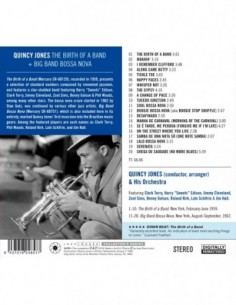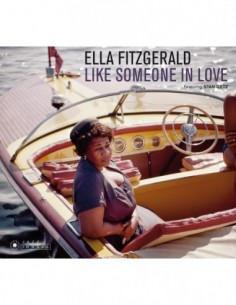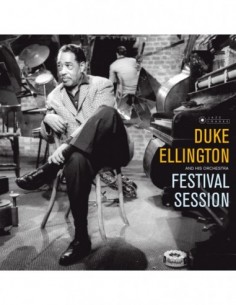Lady Sings the Blues
Billie Holiday
THE JEAN-PIERRE LELOIR COLLECTION
INCLUDES 1 BONUS TRACK
180 pure virgin vinyl LPs in Gatefold packaging
"Lady Sings the Blues" is the name of the Billie Holiday album presented here, as well as the record’s title track. It was even used as the title of the singer’s autobiography, which she presented shortly before the making of this amazing LP. The album placed Lady Day in the company of celebrated jazz stars, such as Charlie Shavers, Harry “Sweets” Edison, Paul Quinichette, Wynton Kelly, Barney Kessel, and Kenny Burrell, and received a five-star rating in Down Beat. “Lady Sings the Blues, I understand, was a rather stormy session in its first eight tracks”, wrote Nat Hentoff, “but to a listener who wasn’t there, it comes through as a characteristic, satisfyingly troubling, indelible Billie monologue. Tempos are generally slow with some walking medium. No other singer now in jazz gets so fully into the bloodstream as Billie still does. Billie still has the best vocal game in town when she’s playing for keeps.”
PERSONNEL:
BILLIE HOLIDAY, vocals, plus:
ON SIDE A & B1-B2:
Charlie Shavers (tp), Tony Scott (cl, arr), Paul Quinichette (ts),
Wynton Kelly (p), Kenny Burrell (g), Aaron Bell (b), Lennie McBrowne (d).
New York, June 6-7, 1956.
ON TRACKS B3-B7:
Harry “Sweets” Edison (tp), Willie Smith (as), Bobby Tucker (p),
Barney Kessel (g), Red Callender (b), Chico Hamilton (d).
“I Thought About You” is a Billie Holiday-Bobby Tucker duet.
Los Angeles, September 3, 1954.
“Stormy Blues” was originally issued in 1955 on the single Clef 89141.
All original sessions produced by Norman Granz.
SIDE A:
01 TRAV’LIN’ LIGHT
02 I MUST HAVE THAT MAN!
03 SOME OTHER SPRING
04 LADY SINGS THE BLUES
05 STRANGE FRUIT
06 GOD BLESS THE CHILD
SIDE B:
01 GOOD MORNING, HEARTACHE
02 NO GOOD MAN
03 LOVE ME OR LEAVE ME
04 TOO MARVELOUS FOR WORDS
05 WILLOW WEEP FOR ME
06 I THOUGHT ABOUT YOU
07 STORMY BLUES (*)
(*) BONUS TRACK: Not included on the original LP.
- Format
- LP
- Discs
- 1
- Label code
- 37012
 Cookie preferences
Cookie preferences
























































